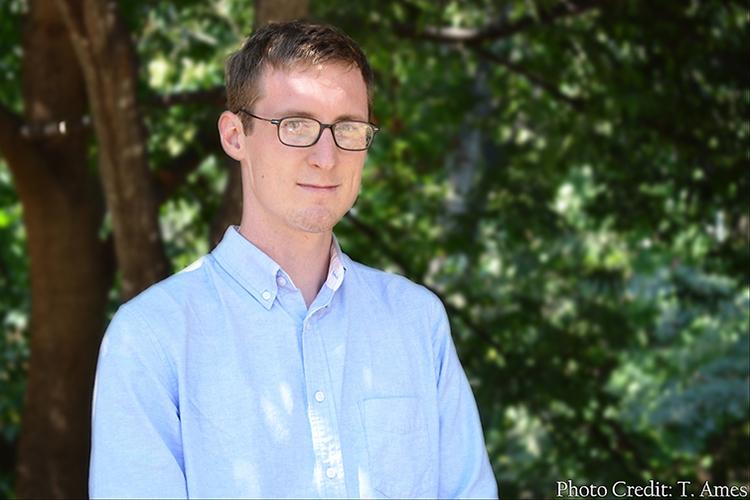Main content
Former Fellow Collin Cornell publishes edited volume

TIJS is proud to announce that past graduate fellow Collin Cornell has completed a book entitled Divine Doppelgängers: YHWH’s Ancient Look-Alikes. While a student of the Hebrew Bible program in Laney's Graduate Division of Religion, Dr. Cornell received TIJS's Judaic Book Fund grant, which he used to support the project. The volume gathers Jewish and Christian scholars to address the theological challenge of other ancient deities that resemble the biblical God (and vice versa). It seeks to address the question: how do scholars and students of the Hebrew bible reconcile the notion of YHWH as a unique deity despite contemporaneous "divine doppelgängers" who also served as kingmakers, guardians of humanity, and controllers of fate? Dr. Cornell answered the following questions about the work:
What inspired you to embark on this project?
The origins of this project trace back to a class I took at Princeton Seminary—an informal, extracurricular seminar, actually. We were translating through a number of inscriptions from the next-door neighbors of ancient Israel, and we came to a rather long one from a kingdom on the other side of the Dead Sea, a place called Moab. This inscription tells of a god (named Chemosh) who had been angry at his land and so allowed his people to be conquered by Israel. But then Chemosh grew favorable and led his client king to victory, driving out the foreign invader. In other words, it reads like a photo negative of a chapter from the Hebrew Bible: all the same elements, just inverted. I had been brought up as a Christian to expect that the biblical God alone is God, unique. “Who then is like me?” God asks in Isaiah (44:7). The answer, I had thought, is NOBODY. But there was Chemosh, looking very similar indeed. As I wrote in my own chapter contribution to the book, this experience occasioned some theological vertigo for me, “an uneasy sense of going off balance; of theological coordinates gone blurry."My training in Hebrew Bible at Emory was second to none—and I thank the Tam Institute for supporting my studies with a Graduate Fellowship. But much of my work only deepened a historical awareness of the similarities between the biblical God and other ancient deities; it did not address the theological dimension, of what to make, as a religiously committed person, of these divine doppelgängers. So the matter lay dormant. But eventually the thought came to me that I am hardly the first to consider Yhwh’s ancient look-alikes, and in fact many of the most respected scholars in the field are also practicing Jews and Christians. So why not consult them to see how they have navigated this theological challenge? With the help of the Judaic Book Fund Grant from the Tam Institute and a Competitive Research Award from the Laney Graduate School, I began to do just that. I reached out to authors and put together a book proposal in the spring of 2017.
What do you hope to achieve with this book?
I hope that this book can be a resource for integration. People encounter the reality that the biblical God had ancient look-alikes in a number of ways: study notes in Bibles, religion classes in college, seminary and divinity school, adult education forums. And many of those people confess, sometimes on a regular basis, that Yhwh is one; or that “There is but one only living and true God” (that’s the Westminster Confession). But there’s not much guidance or discussion out there as to how to think these things together. This book offers an opportunity to hear from some of the best living scholars of the Hebrew Bible about how they approach the subject. I anticipate that it will challenge some readers to think more critically and historically, and from others it will demand that they flex some unfamiliar theological muscles. As far as I am aware, there’s nothing quite like this book out there.
The volume, published by Penn State University Press, will be available in print in April 2020. Dr. Cornell is currently a visiting assistant professor in the School of Theology at the University of the South. His forthcoming monograph, Divine Aggression in Psalms and Inscriptions: Vengeful Gods and Loyal Kings (Cambridge University Press), is a revised version of the dissertation he wrote at Emory. It will serve as a sustained comparison of certain biblical psalms, keyed to the theme of divine aggression. Dr. Cornell says this work is more historical and technical in nature than Divine Doppelgängers, but may in the end serve as a companion piece.